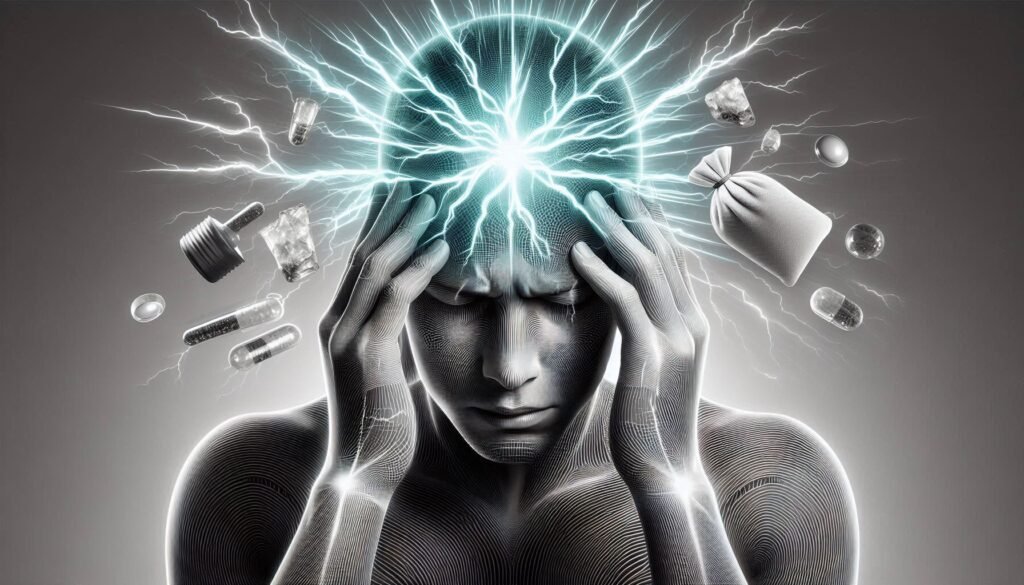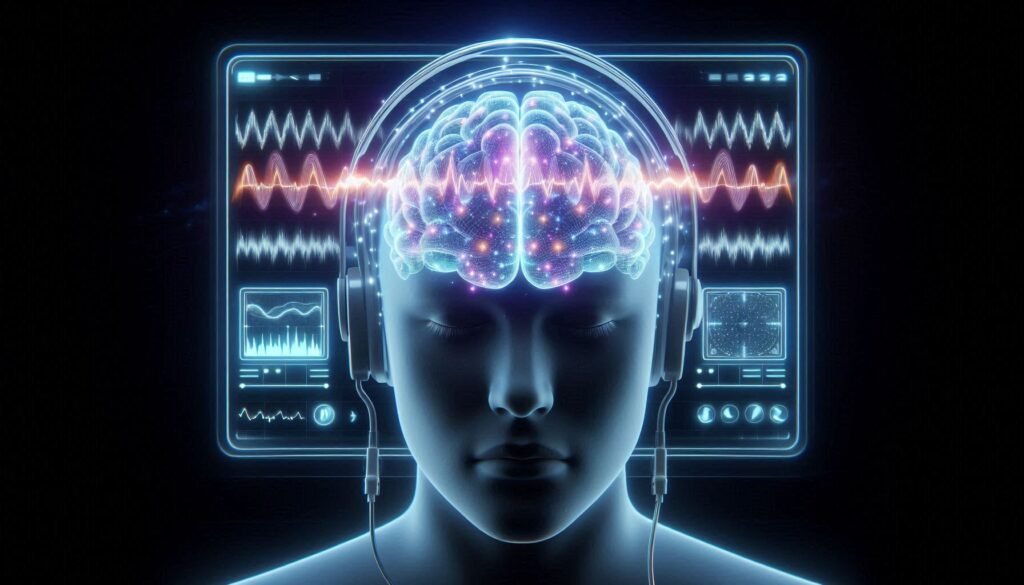Concussions are often associated with physical injury, but the emotional aftermath can be just as significant. Many individuals experience heightened levels of anxiety and depression following a concussion, leading to challenges that extend far beyond initial symptoms. Understanding these mood disorders is crucial for effective recovery.
Psychological interventions play a vital role in helping patients navigate the complex landscape of emotions after head trauma. From cognitive behavioral therapy techniques to mindfulness practices, various strategies exist to address these mental health concerns. This article delves into effective psychological approaches tailored specifically for those struggling with anxiety and depression after a concussion. Whether you’re a patient seeking relief or a caregiver wanting to support your loved one, this guide will provide valuable insights on managing post-concussion emotional health effectively.

Understanding the Prevalence of Mood Disorders Post-Concussion
Mood disorders are surprisingly common following a concussion. Research indicates that approximately 30% to 50% of individuals may experience anxiety and depression during their recovery process. This prevalence highlights the need for increased awareness among both healthcare providers and patients.
The relationship between brain injury and mood disturbances is complex. Physical changes in the brain, such as inflammation or disruption of neurotransmitter systems, can contribute to these emotional challenges. Furthermore, the stress of coping with symptoms like headaches and cognitive difficulties can exacerbate feelings of anxiety or sadness.
Timing also plays a crucial role. Many people begin to notice mood changes within days or weeks after sustaining a head injury, although some might not recognize these shifts until months later. This delayed onset can complicate diagnosis and treatment options.
For those affected by these conditions, acknowledging the connection between concussions and mood disorders is essential for effective management strategies moving forward. Early identification can lead to timely interventions that improve overall quality of life during recovery.
Cognitive Behavioral Therapy Techniques for Concussion-Related Anxiety
Cognitive Behavioral Therapy (CBT) is an effective approach for managing anxiety following a concussion. It focuses on identifying and altering negative thought patterns that contribute to feelings of unease. Patients learn to challenge irrational beliefs about their symptoms, which can alleviate anxiety.
One key technique in CBT is exposure therapy. This gradual process helps patients confront feared situations related to their injury, such as returning to physical activities or social settings. By facing these fears step by step, individuals often discover that they can manage their anxiety more effectively than anticipated.
Another crucial aspect of CBT involves developing coping strategies. Patients are taught relaxation techniques such as deep breathing and progressive muscle relaxation. These methods promote calmness during moments of distress, allowing individuals to regain control over their emotional responses.
Additionally, keeping a thought diary serves as a practical tool in CBT sessions. Tracking thoughts linked to anxiety helps patients recognize triggers and evaluate the accuracy of those thoughts, paving the way for healthier cognitive habits.
Mindfulness-Based Approaches to Managing Post-Concussion Depression
Mindfulness-based approaches offer a unique pathway for managing post-concussion depression. These techniques focus on cultivating present-moment awareness, helping individuals navigate their thoughts and feelings without judgment. By doing so, patients can develop a deeper understanding of their emotional responses to concussion.
Meditation is a cornerstone of mindfulness practice. It encourages individuals to center themselves, promoting relaxation and reducing anxiety levels that often accompany depressive symptoms. Simple breathing exercises can also be beneficial, allowing patients to ground themselves during overwhelming moments.
Another effective technique is mindful movement or yoga. Engaging in gentle physical activity helps release pent-up tension while fostering body awareness. This holistic approach not only eases mental strain but also reconnects individuals with their physical selves after an injury.
Incorporating these practices into daily routines can create significant improvements in mood regulation and overall well-being. Mindfulness provides tools for resilience, empowering those affected by concussion to manage their emotional states more effectively.
Addressing Post-Traumatic Stress Symptoms Following Head Injury
Post-traumatic stress symptoms can emerge after a head injury, complicating the recovery process. Individuals may experience flashbacks, nightmares, and heightened anxiety related to the incident that caused their concussion. These reactions can be distressing and interfere with daily activities.
Recognizing these symptoms early is crucial for effective treatment. Mental health professionals often employ trauma-focused therapies to help patients process their experiences. Techniques like Eye Movement Desensitization and Reprocessing (EMDR) have shown promise in alleviating PTSD symptoms following traumatic events.
Creating a safe space for discussions about the injury can also benefit emotional healing. Supportive environments encourage individuals to express their feelings without fear of judgment, fostering an essential step towards recovery.
Incorporating coping strategies such as deep breathing or grounding exercises can provide immediate relief during moments of acute stress. These techniques empower patients by offering tools they can use anytime, promoting resilience alongside professional therapy approaches.
The Role of Support Groups in Emotional Recovery
Support groups play a vital role in the emotional recovery of individuals facing anxiety and depression following a concussion. They provide a safe space for participants to share their experiences, fostering connections that can alleviate feelings of isolation. This sense of community is crucial, as many patients struggle with understanding their symptoms and coping mechanisms.
Participants often find comfort in knowing they are not alone in their struggles. Hearing others’ stories can validate shared experiences, which may lessen feelings of fear or hopelessness. Support groups also offer practical advice from peers who have navigated similar challenges.
Facilitators often guide discussions around coping strategies and helpful resources. Members might exchange tips on managing mood swings or anxiety triggers specific to post-concussion syndrome. These interactions encourage active participation in one’s recovery journey.
Additionally, regular meetings create structure and routine during what can feel like an unpredictable time. The supportive environment enhances emotional resilience by allowing members to practice vulnerability while receiving encouragement from others who understand their plight.
Family Therapy: Supporting the Patient’s Social Environment
Family therapy plays a crucial role in the recovery of patients experiencing anxiety and depression post-concussion. It fosters open communication among family members, allowing them to express their feelings and concerns. This supportive environment enables everyone involved to better understand the challenges faced by the patient.
Involving family members in therapy sessions helps to identify patterns that may contribute to emotional distress. By addressing these dynamics, families can work together more effectively toward healing. It also reinforces the idea that recovery is a collective journey rather than an individual struggle.
Family therapists equip loved ones with strategies for providing support without fostering dependency or enabling negative behaviors. They teach families how to set healthy boundaries while still being emotionally available.
Moreover, positive reinforcement from family can significantly influence a patient’s outlook on life after injury. Encouragement and understanding promote resilience, helping individuals navigate their emotions as they recover from both physical and psychological effects of concussion.
Biofeedback Techniques for Anxiety Management in Concussion Patients
Biofeedback is a powerful tool for managing anxiety, particularly in patients recovering from concussion. This technique involves using sensors to monitor physiological functions such as heart rate, muscle tension, and brain activity. By providing real-time feedback, individuals can learn how to control their body’s responses to stress.
In the context of concussion recovery, biofeedback can help patients become aware of their anxiety triggers. For instance, they might notice an increase in heart rate when thinking about returning to normal activities. Recognizing these patterns empowers them to take proactive steps toward relaxation.
Training sessions often incorporate deep breathing exercises or progressive muscle relaxation alongside biofeedback monitoring. As patients practice these techniques during therapy sessions, they develop skills that can be applied at home or in other stressful situations.
Research shows that biofeedback not only reduces anxiety levels but also enhances overall emotional well-being following a concussion. It offers a non-invasive method for fostering self-regulation and resilience during recovery.
Implementing Behavioral Activation for Post-Concussion Depression
Behavioral activation is a powerful psychological intervention for individuals experiencing post-concussion depression. It focuses on encouraging patients to engage in meaningful activities that improve their mood and overall well-being. This approach recognizes the cycle of inactivity and negative feelings that often accompanies depression.
By identifying specific tasks or hobbies, therapists help patients create an activity schedule tailored to their interests and energy levels. Simple actions, like going for a walk or reading a book, can provide immediate benefits by breaking the inertia caused by depressive symptoms.
As patients gradually participate in these activities, they may experience improved motivation and reduced feelings of helplessness. The key lies in setting achievable goals that promote gradual exposure to enjoyable experiences.
Moreover, behavioral activation fosters a sense of accomplishment. Each completed task reinforces positive emotions while helping individuals reconnect with their daily lives after concussion trauma. This method empowers them to actively combat depressive thoughts through structured engagement with life’s pleasures.
Psychoeducation: Empowering Patients to Understand Their Symptoms
Psychoeducation plays a crucial role in helping patients understand their symptoms following a concussion. By providing clear information about mood disorders, individuals can gain valuable insights into how these conditions may manifest after injury. This understanding is essential for reducing feelings of confusion and fear.
Through educational sessions, patients learn about the psychological impacts of concussions, such as anxiety and depression. They discover that these feelings are common responses to brain injuries rather than personal failures or weaknesses. This knowledge fosters self-compassion and encourages proactive engagement with treatment options.
Empowerment comes from recognizing specific triggers related to their symptoms. Patients can be taught coping strategies tailored to manage their experiences effectively. When individuals understand the link between their physical health and emotional well-being, they feel more equipped to navigate their recovery journey.
Moreover, psychoeducation promotes open communication between patients and healthcare providers. This collaboration enhances treatment effectiveness while encouraging a supportive environment where questions and concerns can be addressed openly.
Integrating Psychological Care with Overall Concussion Management
Integrating psychological care with overall concussion management is essential for comprehensive recovery. Treating anxiety and depression following a concussion requires more than just addressing physical symptoms; the emotional and psychological aspects are equally important.
Healthcare providers should adopt a multidisciplinary approach, collaborating with psychologists, neurologists, and rehabilitation specialists. This ensures that patients receive holistic support tailored to their unique needs.
Regular assessments of mood disorders should be part of the follow-up process post-concussion. By incorporating mental health evaluations into routine care, clinicians can identify patients who may benefit from specific psychological interventions early on.
Furthermore, educating all members of the healthcare team about the signs and symptoms of anxiety and depression related to concussions fosters a supportive environment for patient recovery. A well-rounded approach not only aids in symptom management but also empowers patients, helping them regain control over their lives after experiencing such trauma.
Understanding that psychological interventions play a crucial role in healing reinforces their importance as part of any effective concussion treatment plan.


